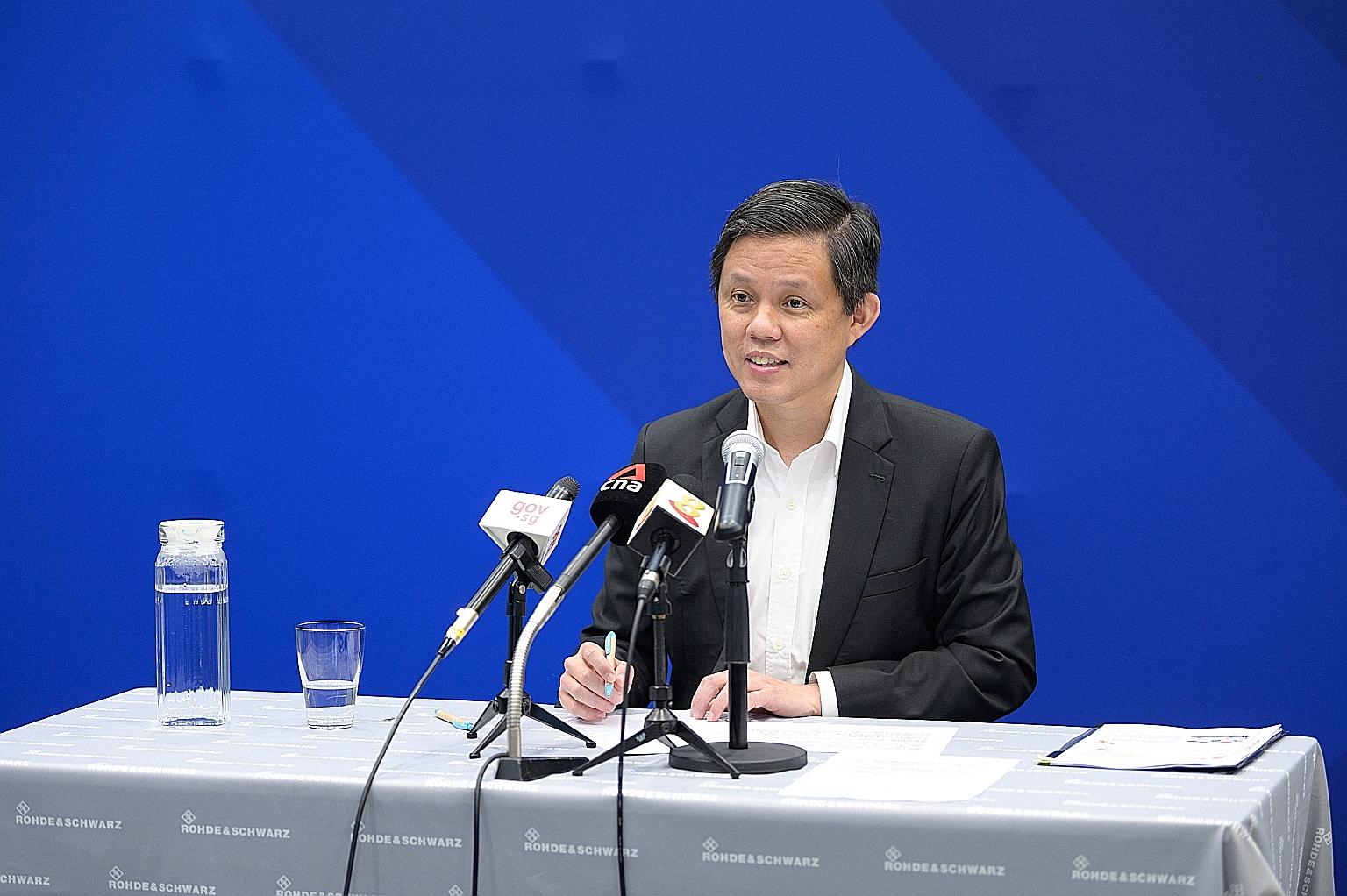Asean needs more economic integration to ensure strong recovery from Covid-19: Chan Chun Sing
Sign up now: Get ST's newsletters delivered to your inbox

Trade and Industry Minister Chan Chun Sing said more can be done to counter non-tariff barriers and harmonise the regulatory environment.
PHOTO: MINISTRY OF TRADE AND INDUSTRY
Follow topic:
Asean nations should press on with fostering closer economic relations within the group and beyond, putting the region at the forefront of the global recovery from the Covid-19 crisis, Singapore's Minister for Trade and Industry Chan Chun Sing said yesterday.
While closer integration has been a longstanding priority for Asean, more can be done to counter non-tariff barriers and harmonise the regulatory environment - especially in the fast developing digital economy, he told the 8th Asean-EU Business Summit at the Fullerton Hotel.
"Greater integration will present businesses and investors with a more attractive proposition even as global production supply and value chains are reshaped and reorganised in the post-pandemic world," he said.
While the US and China - the world's two largest economies - may have internal and bilateral issues to resolve, the rest of the world, including Asean and the European Union, must continue to uphold and update the global security and economic architecture, he said. "Global leadership cannot be the sole responsibility or burden of only the two largest economies."
Earlier, the EU's ambassador to Asean, Mr Igor Driesmans, speaking virtually as a panellist, said the two groupings share the belief in a multilateral and rule-based global trading system.
He said the EU has deepened its relationship with the Asean region over the years, resulting in the recent bilateral free trade agreements (FTAs) with Singapore and Vietnam, and it is working on another FTA, with Indonesia.
"We will continue to seek more FTAs in the region and move on towards a region-to-region FTA, between EU and Asean. For us, that is a priority," said Mr Driesmans.
Mr Don Kanak, chairman of the EU-Asean Business Council which organised the event, said Asean needs to remove the remaining barriers to trade within the region and present itself as a unified marketplace to take advantage of the global move towards more resilient supply chains.
He said the council's 2020 Business Sentiment Survey showed that over 50 per cent of European firms see Asean as the region with the best opportunities to relocate and expand their operations. "This is a window of opportunity for Asean to speed up their recovery."
Mr Chan said Singapore looks forward to continuing to work with the EU on a region-to region FTA.
He said that beyond the FTAs with Singapore and Vietnam that became effective this year, there were many areas with potential for deeper collaboration with the EU and its business community, including healthcare, digitalisation and sustainable development.
The minister said the Asean Digital Integration Framework - developed during Singapore's 2018 chairmanship of the grouping - provides a blueprint for a single regional digital economy and can be used to boost connectivity with the EU through common digital platforms and standards.
"A digital economy agreement with the EU will be a key step towards connecting the EU and Asean digitally," Mr Chan said.
EU Trade Commissioner Valdis Dombrovskis said in a video message that the Asean region is a very important political and economic partner for the EU.
The EU is Asean's third-largest trading partner, one of the biggest investors and the largest development donor in the region, he said.
"We share a similar outlook on open markets, on the importance of rules-based multilateral order and on the value of regional cooperation. We should build on this shared outlook and even closer cooperation," Mr Dombrovskis said.

